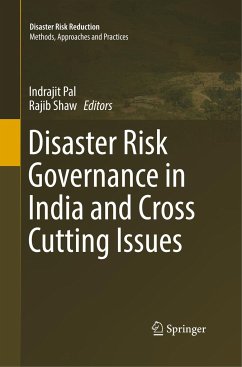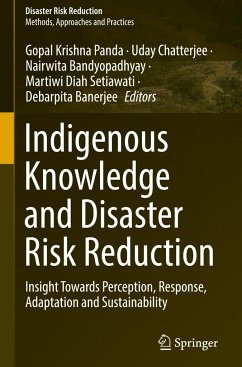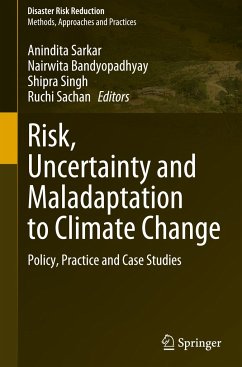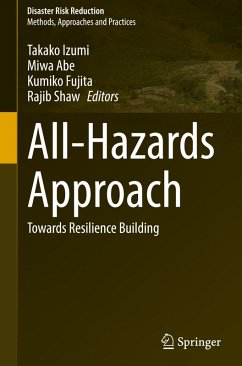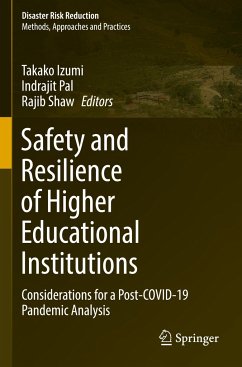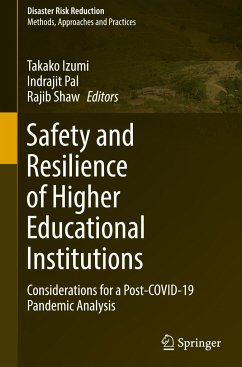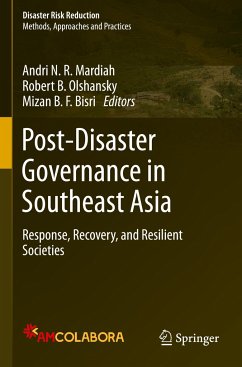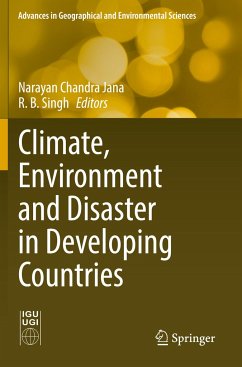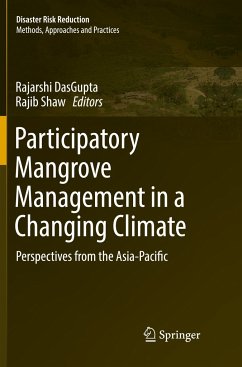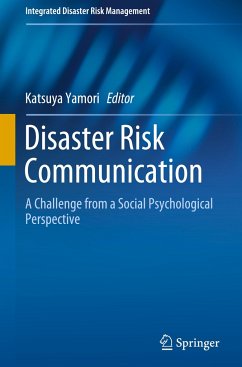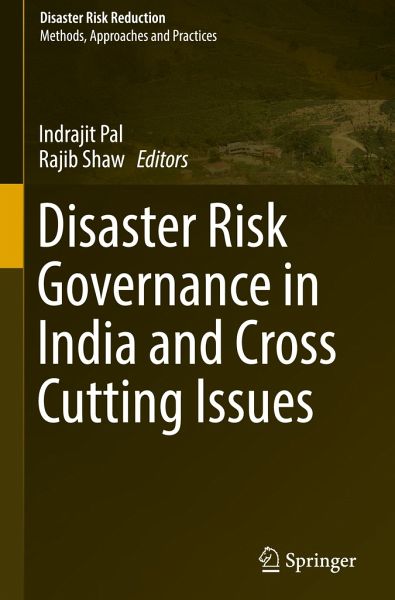
Disaster Risk Governance in India and Cross Cutting Issues

PAYBACK Punkte
38 °P sammeln!
This book provides an analytical discussion of the status of disaster risk reduction and governance in an Indian context, drawing examples and lessons from the output of the national and regional level programs and projects and from other relevant experiences in the country. Different types of disasters faced by Indian states are covered, including geophysical and hydrometeorological hazards. The book incorporates and draws upon some of the key lessons from the pre-disaster phase through the disaster phase and finally to the post-disaster phase, thus establishing an effective framework in the ...
This book provides an analytical discussion of the status of disaster risk reduction and governance in an Indian context, drawing examples and lessons from the output of the national and regional level programs and projects and from other relevant experiences in the country. Different types of disasters faced by Indian states are covered, including geophysical and hydrometeorological hazards. The book incorporates and draws upon some of the key lessons from the pre-disaster phase through the disaster phase and finally to the post-disaster phase, thus establishing an effective framework in the form of key lessons learned.
The rich content of the book is based on contributions from various stakeholders, from academicians and practitioners to decision makers and nongovernment organizations related to disaster risk management systems in an Indian context. Special emphasis is given to analyzing field experiences from academic perspectives and pointing out key issues alongwith the relevance of risk governance of disaster risk reduction. The book works as a comprehensive reference in disaster risk governance for disaster managers in India and other countries.
The book has 19 chapters organized into four parts. Part I provides the outline and basics of disaster risk governance perspectives at the national level with supporting examples from a global point of view. Part II specifically emphasizes the detailed perspectives on risk governance at the regional and local levels. Part III is devoted to approaches and issues of disaster risk governance and development at various levels, stressing the practices and clear examples of disaster risk governance, policy options, institutional organization, risk-reduction strategies, and key lessons learned. Finally, Part IV highlights risk reduction and cross-cutting issues, focusing on risk mitigation and scientific intervention for disaster risk reduction.
The rich content of the book is based on contributions from various stakeholders, from academicians and practitioners to decision makers and nongovernment organizations related to disaster risk management systems in an Indian context. Special emphasis is given to analyzing field experiences from academic perspectives and pointing out key issues alongwith the relevance of risk governance of disaster risk reduction. The book works as a comprehensive reference in disaster risk governance for disaster managers in India and other countries.
The book has 19 chapters organized into four parts. Part I provides the outline and basics of disaster risk governance perspectives at the national level with supporting examples from a global point of view. Part II specifically emphasizes the detailed perspectives on risk governance at the regional and local levels. Part III is devoted to approaches and issues of disaster risk governance and development at various levels, stressing the practices and clear examples of disaster risk governance, policy options, institutional organization, risk-reduction strategies, and key lessons learned. Finally, Part IV highlights risk reduction and cross-cutting issues, focusing on risk mitigation and scientific intervention for disaster risk reduction.



